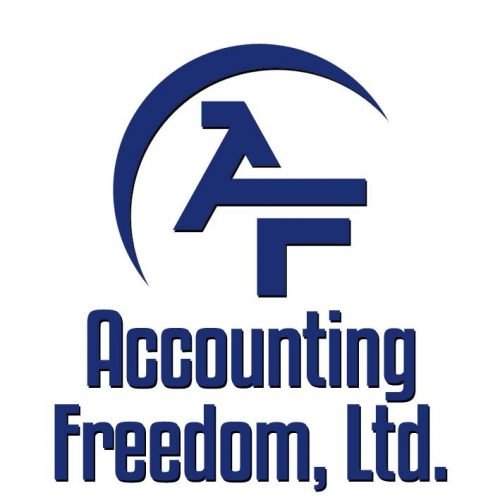Comprehensive Guide to Small Business Accounting

Handling in-house accounting as a small business can be an overwhelming process, especially when yourbusiness is growing, payroll has become more complex, or bookkeeping tasks are detracting from important day-to-day operations.
Understanding the fundamentals of small business accounting is crucial for financial health and compliance. Whether it’s tracking expenses, reconciling bank statements, managing taxes, or leveraging insights to improve budgeting, Accounting Freedom provides streamlined accounting solutions tailored to meet the unique needs of small businesses, ensuring meticulous financial management and long-term compliance.
In this guide, we’ll explore the ins and outs of small business accounting to help you understand the process, including the technology, support, and best practices you can adopt to ensure compliant and efficient accounting.
Beyond Bookkeeping with Accounting Freedom
Although basic bookkeeping services can help you accurately record financial transactions, professional accounting support from Accounting Freedom gives you access to thorough analysis and interpretation of this data, which leads to improved financial planning, tax planning, and internal audits that prevent fraud and noncompliance. When accounting services are synchronized with payroll – using leading-edge software – your accounting practices are even further elevated, granting you more time to devote to core business tasks.
Reviewing First Steps
Any new startup or small business must first establish a legal structure (LLC, for example), open a small business bank account, and choose a cash- or accrual-based accounting system. Although Accounting Freedom can help with each of these steps, we’ll focus on discussing subsequent steps that are integral to small business accounting once this basic business framework has been established.
Creating a Chart of Accounts
Prior to recording financial transactions, it’s important to generate a chart of accounts for your small business. There are five common account types that are used in most business’ chart of accounts:
- Revenue – This is the income your business earns from the services you provide, or the goods you sell.
- Expenses – This includes everything from utility bills to insurance, employee wages, property rent, and any other verifiable costs of operating your business.
- Assets – This can include your business inventory, other physical possessions (computers, furniture, etc.), as well as the existing money in your small business bank account, or the money owed to you by customers (your accounts receivable balance).
- Liabilities – This refers to any debts your business owes: from funds owed to vendors (your accounts payable balance) to outstanding loans or notes.
- Equity – Your business’ assets minus liabilities equals equity: the financial value of the business or an owner’s financial interest in the business. With positive equity, a business is worth more than what it owes.
When you use our accounting services for small businesses solution, we quickly generate a chart of accounts that is digitally accessible and integrated with other accounting and payroll processes.

Best Accounting Practices for Startups and Small Businesses: Tracking Funds
Following the creation of a chart of accounts, you’ll need to develop a system for consistently tracking your business funds, including regular transactions and business expenses. You’ll also need to institute a process for creating receipts, filing them, and reconciling bank statements.
When it comes to tracking funds, even small or irregular expenses should be calculated and documented. The IRS requires all eligible expenses to be officially documented with receipts indicating each transaction’s amount, payment method, date, and the nature of the purchase. Whether you’re documenting and verifying expenses for utilities, office supplies, advertising, transportation, postage costs, or leasing at a physical location, it’s crucial to record this information accurately so you can maximize your tax deductions.
Of course, tracking funds and managing receipt data can quickly become complicated and tedious when managed in-house or with a disjointed digital process. That’s why using Accounting Freedom’s comprehensive small business accounting solution empowers you to bypass Excel spreadsheets and receipt scanning in favor of easy automation of transaction history. Syncing with your small business bank account and payroll software, we ensure you can effortlessly import and export your business’ transaction history and enjoy peace of mind about tracking business funds and compliant recordkeeping.
Financial Reporting for Small Businesses
Moving beyond tracking funds and processing receipts, creating regular financial statements can provide you with holistic insights about your business’ success (or areas where improvement is needed). It’s also a valuable asset to inform financial strategy or share with potential lenders if you seek financing in the future.
In addition to a balance sheet, which shows the balance of your business’ assets, liabilities and owner or shareholder equity, you should also create the following financial statements:
- Income Statement – This document demonstrates your business’ income, expenses, and gains (or losses) over a set period of time. It shows your business’ net profit or net loss over a given period (whether it’s quarterly, over a calendar year, a tax year, or otherwise).
- Cash Flow Statement – This document demonstrates how cash flows out of and into your business, and can provide insights about how efficiently and predictably your business is able to pay its bills on a monthly basis.
Accounting Freedom’s small business accounting solution makes it easy for your business to quickly generate balance sheets, income statements, and cash flow statements using data integrations with your small business banking account and payroll.
Tax Preparation, Payroll, and Compliance for Small Businesses
As a small business, you are required to file a tax return that includes payments to the IRS for at least one or more of the following: income tax, estimated tax, employer tax, self-employment tax, and/or excise tax. You are also responsible for any local or state taxes that apply based on a number of factors: your industry, business size and business structure. Any business with employees must also calculate and pay payroll taxes, which also vary in scope by jurisdiction and fluctuate regularly due to legislative changes.
Since compliance requirements vary widely, it’s essential to work with an accounting and payroll provider with the ability to provide streamlined technology and personalized support that automates payroll tax deductions, as well as local, state, & federal tax filing, ensuring lasting compliance with all applicable labor laws.

Enjoy Premier Small Business Accounting Services with Accounting Freedom
Small business accounting is a complex and nuanced process that requires the right tools and professional support, especially as it extends to include payroll, tax filing, and compliance concerns.
Accounting Freedom provides a comprehensive small business accounting solution that includes personalized strategy sessions, monthly accounting services, business tax preparation, compliance monitoring, payroll support, real-time collaboration, and business coaching. From leading-edge software to dedicated customer support, we work as an invested partner in your business’ success and tailor our approach to align with your long-term goals.
Ready to streamline and simplify accounting and payroll for your small business? Contact us today to start the process.
